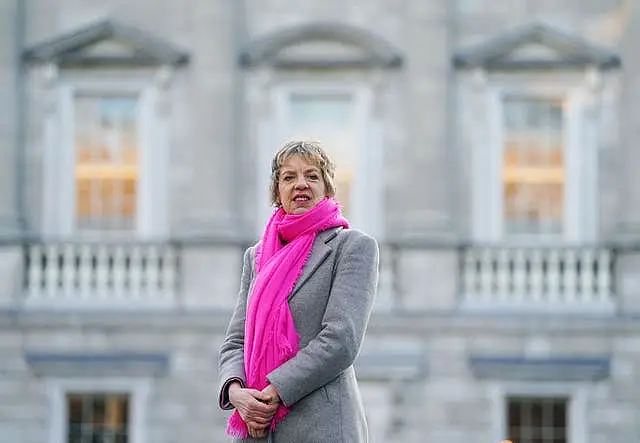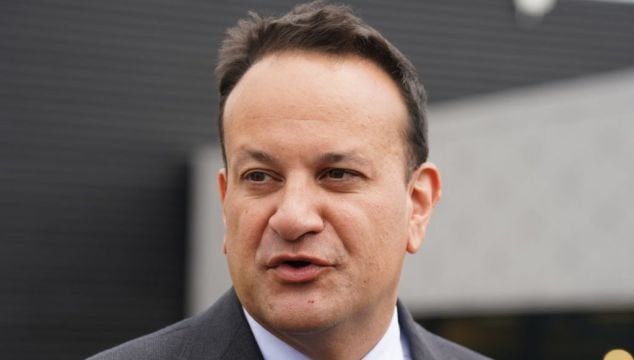The Government is considering reimbursing parents who have had to pay private practitioners to assess their children for what their special needs are, Taoiseach Leo Varadkar has said.
It comes after the opposition raised questions about delays for assessments of needs and long waiting lists for services.
Children with a disability are entitled to an assessment of need by the HSE, which should be provided within three months.
Last year, the High Court ruled that the HSE’s approach to providing this assessment was not compliant with the requirements of the Disability Act, 2005.
The HSE had adopted an approach in order to address considerable wait times facing families for assessment and intervention, but accepted the findings of the ruling.
Speaking in the Dáil on Wednesday, Mr Varadkar said that delivering on the assessments of needs requirement was “a real challenge”.
“We shortened the assessment of needs, that help for a period of time, reduced the waiting lists,” he told TDs.
“The court decision meant that we had to reverse that and now that is creating a problem and that is sometimes what happens when you put things in law for good intention, it can backfire on you.”
The Minister of State with responsibility for disability services Anne Rabbitte had indicated to the Labour Party that the Government will consider reimbursing parents for costs when they are forced to use private providers for assessments of needs, in order to bypass long wait times.
Labour leader Ivana Bacik said Ms Rabbitte would make this commitment by August if certain targets are not met.
“I want to commend Minister Rabbitte for committing to bring our Labour proposal to Cabinet if six regional assessment teams are not functional by August 1st, that she was committing the State to pay for assessments of needs of children awaiting more than three months,” Ms Bacik said.
“I think that was a really important, if I may say, a really timely and unexpected, but very welcome intervention by Minister Rabbitte, supported by Minister [for Children Roderic] O’Gorman.”

When Ms Bacik asked the Taoiseach to make the same commitment, Mr Varadkar said he has “no ideological objection whatsoever” to that proposal, and that similar is done in other elements of healthcare.
“That is something we will examine – in fact, we’ve started examining it already,” he said.
“I’ve never had a problem when using private practitioners to provide public services, no problem with that whatsoever. But if we do, we need to get it right, we need to know how much capacity exists in the private sector – I’m told it mightn’t be that much, but we need to know.”
He said that changes to primary legislation may be required, and the Government is considering unintended consequences of the measure.
Sinn Féin leader Mary Lou McDonald raised the examples of two young children waiting for their needs to be assessed.
A four-year-old boy who is non-verbal and has sleep difficulties has spent half his life waiting for assessment of needs, she said.
“His mam is worried sick that without this assessment he will miss milestones and won’t be supported to live his best life. She’s worried watching her son who she loves so fiercely slip through the cracks of a system that doesn’t seem capable of meeting his needs,” she said.
She said it was “not acceptable” that the parents of a one-year-old child with autism from Co Tipperary was told by the HSE that the first services available to them would be in 2028.
“Seventeen thousand children are waiting for first contact with their specialist children disability network team, 10,000 of those are waiting over a year,” she said.
Mr Varadkar said there had been an “enormous transformation” in the children accessing special education in the past 10 years, adding the Government had boosted the number of special needs assistants.
However, he admitted that some children are waiting “far too long” for therapies they need, and said the shortfall in vital therapies was down to a shortage of qualified staff.
“I know listing recruitment initiatives can seem somewhat removed from the very real pressures that parents and ultimately their children are facing,” he said.
“But I really can’t emphasise enough how the challenges in our CDNTs (Children's Disability Network Teams) are primarily driven by a shortage of staff, how we’re doing all we can to increase the number of staff, to bring in staff from abroad to increase the number of people who are trained.”







